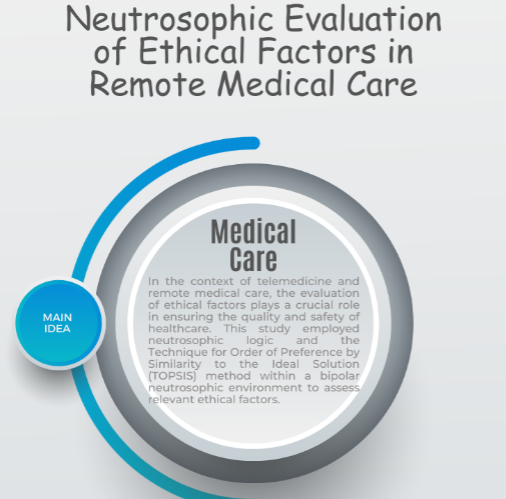Neutrosophic Evaluation of Ethical Factors in Remote Medical Care
Main Article Content
Abstract
In the context of telemedicine and remote medical care, the evaluation of ethical factors plays a crucial role in ensuring the quality and safety of healthcare. This study employed neutrosophic logic and the Technique for Order of Preference by Similarity to the Ideal Solution (TOPSIS) method within a bipolar neutrosophic environment to assess relevant ethical factors. Within the scope of this research, an evaluation and selection process was undertaken for ethical factors influencing remote medical care through telemedicine. The results revealed that "Patient Autonomy in Remote Decision-Making" was the most influential factor. Neutrosophic logic and the TOPSIS method in a bipolar neutrosophic environment provided a robust and equitable tool for addressing the complexity of medical ethics in the era of telemedicine. This approach may contribute to the enhancement of the quality and safety of remote medical care.
Downloads
Article Details

This work is licensed under a Creative Commons Attribution 4.0 International License.





